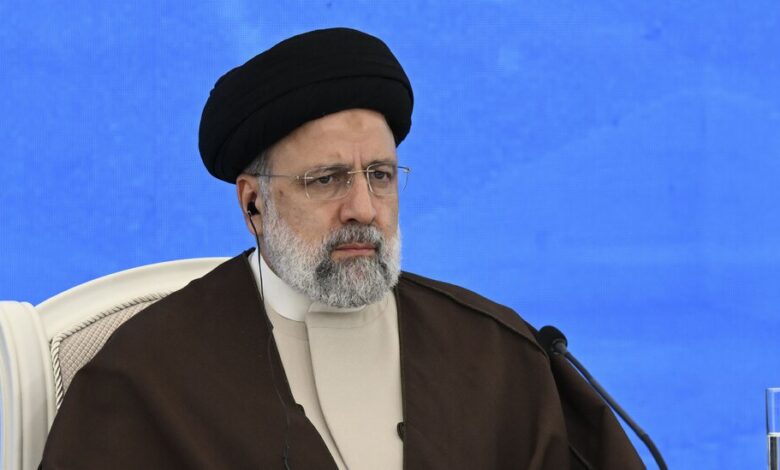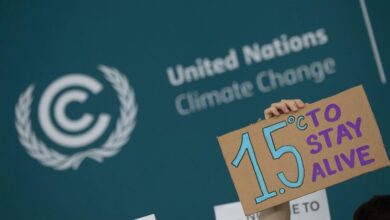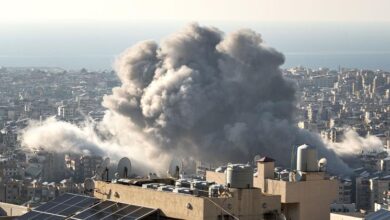Iranian President’s helicopter accident: Live updates

Following the death of President Ebrahim Raisi, Iran’s first vice president, Mohammad Mokhber, became acting president. Mr. Mokhber is a conservative political activist with a long history of involvement in major business groups with close ties to Iran’s supreme leader, Ayatollah Ali Khamenei.
In a statement on Monday, Mr. Khamenei said that Mr. Mokhber must work with the heads of the legislature and judiciary to organize new presidential elections within 50 days.
Vice presidents in Iran are often less famous, operating more as government insiders than as public figures.
“Iranian vice presidents have not traditionally been candidates to succeed their bosses,” said Robin Wright, a joint fellow at the U.S. Institute of Peace and the Wilson Center in Washington. “The bigger question is who the regime will allow to run,” she added.
Mr. Mokhber is about 68 years old this year, becoming first vice president in August 2021. He is originally from Khuzestan province in southwestern Iran, bordering Iraq and the Persian Gulf. He was deputy governor there, and during the Iran-Iraq war in the 1980s, he served as a member of the Revolutionary Guard medical corps.
One of Mr. Mokhber’s relatively high-profile appearances was when he and three other senior Iranian officials went to Moscow last year. October 2022 completed the sale of Iranian drones and ballistic missiles to Russia for use in the war in Ukraine.
Mr. Raisi chose him as vice president after Mr. Mokhber held senior positions in some of Iran’s most powerful institutions, including the Mostazafan Foundation, Sina Bank and Setad, a conglomerate controlled entirely by Ayatollah Khamenei, has assets worth billions of dollars and is related. — not entirely successful — in effort to produce and distribute Covid-19 vaccines.
All three of these organizations are part of a network of shadowy financial institutions tied to the Iranian state, even though they are not directly state-owned. They are also connected to projects prioritized by the supreme leader and his inner circle.
Mr. Mokhber’s involvement suggests he is a successful behind-the-scenes player who is familiar with financial networks important to Iran’s official power structure.
The Mostazafan Foundation, where Mr Mokhber worked in the early 2000s, is officially a charity but is described as US Treasury is a “key patronage network for the supreme leader” that includes stakes in key sectors of the Iranian economy, including finance, energy, construction and mining. It is subject to sanctions by the U.S. Treasury Department because it is controlled by Mr. Khamenei, and the Treasury Department said it was established in part to “confiscate and manage assets, including assets originally belonging to on religious minorities” in Iran, incl Baha’is and Jews.
The Ministry of Finance said the organization transferred some of its money to individuals and organizations in the Islamic Revolutionary Guard Corps that were involved in terrorism and human rights abuses.
Sina Bank was faced punitive measures by the United States Treasury and the European Union on finance Iran’s nuclear and ballistic missile program.
Mr. Mokhber appears to have risen to Iran’s top political leadership position in part because of the close relationship he has developed with Iran’s supreme leader, at least since 2007 when he joined the leadership. Setad religion. Within months of his appointment to Setad, Mr. Mokhber established the Barakat Foundation, which has several companies under its umbrella, including a major Iranian medical and pharmaceutical company.
While his relationship with the supreme leader will be crucial while elections are being held, analysts say a much larger group of senior officials around Khamenei will decide. how to handle this sensitive period in Iran.
“This regime is at a tipping point — politically, economically and even militarily,” Ms. Wright said. Iran’s large-scale air attack on Israel last month was almost completely blocked, which she called “a humiliating defeat.” Voter turnout was low in March’s parliamentary elections It’s also a sign of trouble for Iran’s theocratic regime, she added.
“They are very worried about the future and the durability of their core ideology,” she said.
Leily Nikounazar Report contributions.




